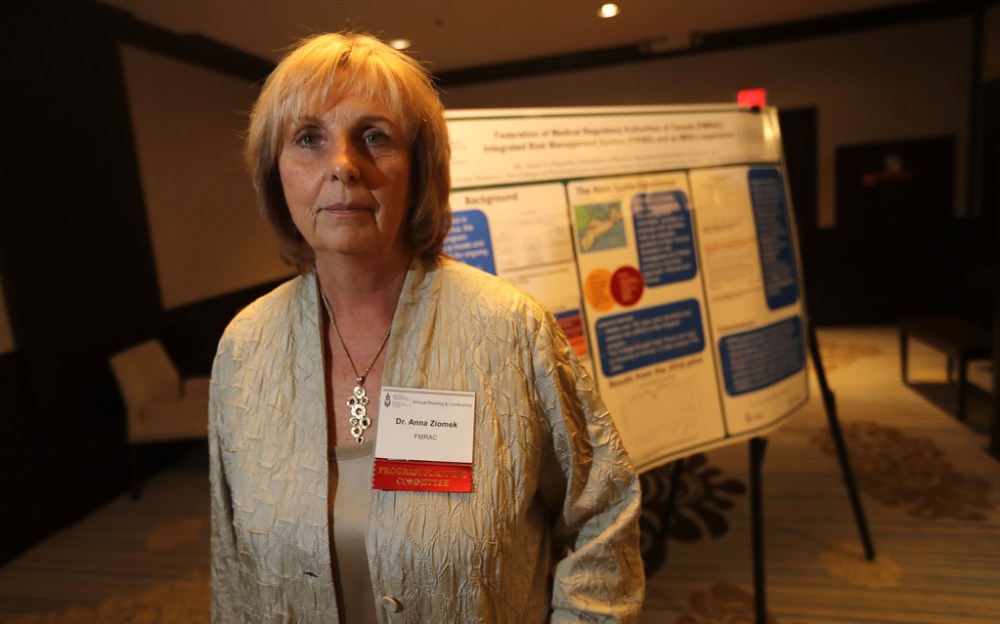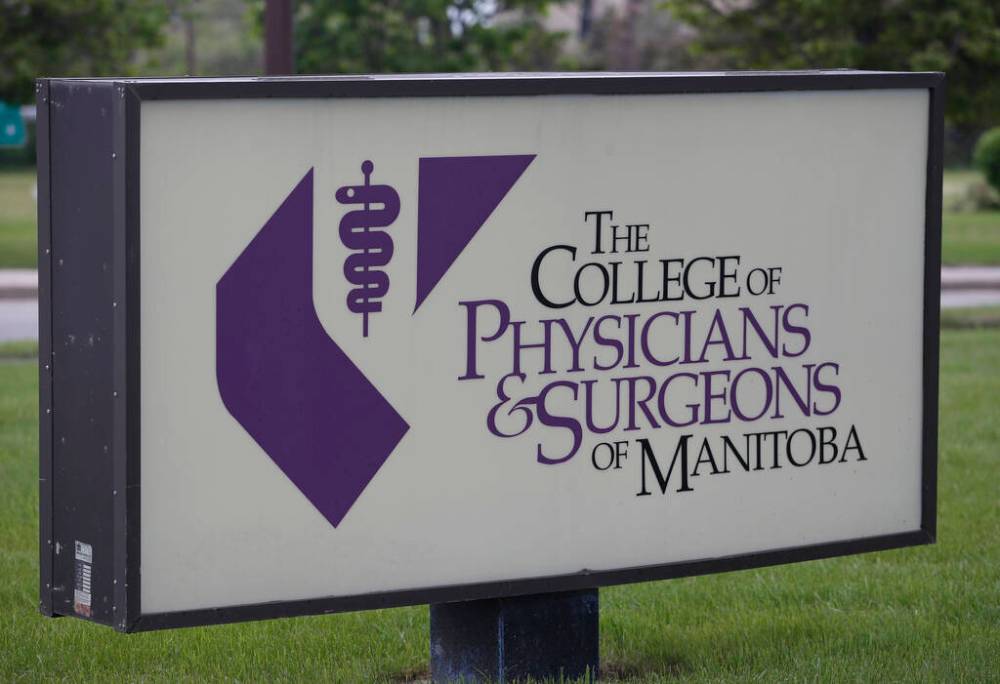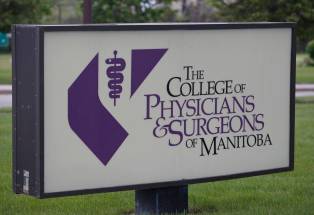Manitoba’s doctors watchdog headed to image rehab Caught between disciplinary and support roles, regulator’s new identity will focus on commitment to quality of care
Read this article for free:
or
Already have an account? Log in here »
To continue reading, please subscribe:
Monthly Digital Subscription
$19 $0 for the first 4 weeks*
- Enjoy unlimited reading on winnipegfreepress.com
- Read the E-Edition, our digital replica newspaper
- Access News Break, our award-winning app
- Play interactive puzzles
*No charge for four weeks then billed as $19 plus GST every four weeks. Offer only available to new and qualified returning subscribers. Cancel any time.
Read unlimited articles for free today:
or
Already have an account? Log in here »
Hey there, time traveller!
This article was published 05/07/2022 (904 days ago), so information in it may no longer be current.
MANITOBA’S physician watchdog says it plans to “rebrand,” shifting its reputation away from one as “feared” disciplinarian toward one friendlier to responsible doctors and committed to quality of care.
Experts applaud the move, saying it could improve patient safety, but they say regulators will always be feared so long as they’re responsible for discipline — something the government could take off the college’s plate but likely won’t.
The College of Physicians and Surgeons of Manitoba revealed details of the planned shift at a June 22 meeting. CPSM council members heard that the college will use audits and solicit feedback from members as it seeks to create its new identity — one focused on quality of care — with goals to “build and enhance” physicians’ “proficiency and effectiveness” while also promoting transparency and reducing fear.
Another hope: as quality of care goes up, patient complaints go down.

“It’s not to say that we shouldn’t do that part (complaint intake and investigations), but we reach so many more patients through the quality department,” said registrar Dr. Anna Ziomek. “We’re not abandoning one for the other.”
In the 2021-2022 fiscal year, the college received 360 complaints, up 70 per cent from the previous year. The CPSM attributes the increase to a new online tool that made it easier for the public to submit complaints.
The rebrand discussion comes amid an ongoing Free Press investigation into the college’s secretive handling of physician misconduct, which has led to calls from critics and patient advocates for the province to review the Regulated Health Professions Act, which governs the CPSM, to better protect patients.

The college has said it is committed to patient safety and strives for transparency, but it is bound by the RHPA. While “some improvements” could be made to the law, the college says only the government has the power to make such changes.
Health Minister Audrey Gordon has declined multiple Free Press requests for an interview.
Lorian Hardcastle, an associate professor at the University of Calgary’s faculty of law, called the CPSM’s shift to a quality of care focus “commendable.”
“You don’t want to catch quality-of-care issues after the fact by disciplining people,” Hardcastle said, noting other health-care regulatory bodies in Canada are making similar moves.
“The other reason it’s sensible is because… there is also under-reporting of potential disciplinary issues. Patients might not know there was a problem, or a patient or another health professional might not feel comfortable reporting on someone.”
“You don’t want to catch quality-of-care issues after the fact by disciplining people.”
– Lorian Hardcastle, associate professor at the University of Calgary’s faculty of law
Steven Lewis, a health-policy consultant based in Vancouver, spoke to the physician “fear” factor, noting that improving quality of care requires open dialogue between doctors and their regulator. If they are afraid of the college — and many are, he said — they’re unlikely to seek advice there when they’re in a tough spot.
“Are you going to do that if you’re worried about a possible disciplinary hearing?” Lewis said. “You can understand the reluctance.”
There is “inevitable tension” when the regulating body is responsible for both discipline and providing support, he said.
Lewis, whose research was referenced at the CPSM meeting, said regulators within Canada have expressed frustration in conversations with him about their disciplinary roles.
Provincial governments could eliminate that source of tension by stripping colleges of their disciplinary mandate and transferring it to a separate oversight entity, he said. But they are unlikely to do so, preferring to have a single agency manage all its affairs.

Brandon Trask, an assistant professor of law at the University of Manitoba, is skeptical of the rebrand.
“I’m of the view that sometimes it’s OK to be feared,” he said. “As the regulator you don’t have to be loved by doctors subject to your regulatory oversight.”
The CPSM expanded on its position in documents accompanying the meeting agenda.
“As the regulator, we must hold our registrants accountable and deal with those individuals who have demonstrated egregious behaviour or have caused harm in negligent ways,” read the document.
“However, we can still protect the public and leave registrants with a positive experience in the way we communicate with them, how we create transparency in process and reduce fear and use audit and feedback to build and enhance their proficiency and effectiveness as professionals.”
Still, Trask said one potential criticism of self-regulation — doctors overseeing doctors — is the possible perception that individuals may be reluctant to deal with their peers in a firm and assertive manner.
Leanne Penny, one of the non-physician CPSM councillors, raised a related concern at the June meeting.
“I think we just have to be concerned with how we word things so that the public understands… we are actually doing these things to increase patient safety and not to be pals with the doctors,” Penny said.
The rebrand rollout is expected to take up to two years.
katrina.clarke@freepress.mb.ca

Katrina Clarke
Reporter
Katrina Clarke is an investigative reporter with the Winnipeg Free Press.
Our newsroom depends on a growing audience of readers to power our journalism. If you are not a paid reader, please consider becoming a subscriber.
Our newsroom depends on its audience of readers to power our journalism. Thank you for your support.











